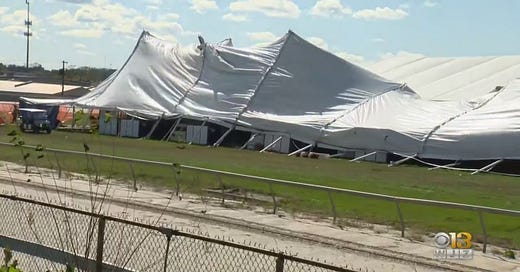by Brad Isbell
Every approaching annual assembly of the Presbyterian Church in America provokes posturing, positioning, and even reflection. To history appeals are made. To the founders we look. On the examples and words of great men we lean. The 2023 general assembly is no normal one—it is the 50th, of which much will be made. This middle-aged denomination looks to its Memphis meeting, not in crisis but in a state of unease, somewhat rattled after five years of controversy and the recent loss of two significant figures.
As in the late 60s and early 70s, violent cultural winds are buffeting the church. Those winds helped blow the PCA into existence in 1973. Theological liberalism and Neo-orthodoxy in the old southern Presbyterian Church in the U.S. were not the only factors that caused the fathers of the PCA to flee and found. The PCA’s mainline Southern mother had capitulated to culture on ethics, worship, and doctrinal fidelity—her maternal home’s once-solid confessional foundation was undermined, failing for lack of maintenance and attention. The PCUS gold, per Morton Smith’s book title, had become dim. And the late additions to the old southern home were built on sandy soil, not up to confessional code. The house came to have the solidity and wind resistance of a tent. Ironically, the old PCUS tabernacle’s stakes were pulled up for the last time only 10 years later in 1983 (a decade after the PCA’s founding) when Northern and Southern mainline churches joined to form the Presbyterian Church (USA), which now slouches toward oblivion after four decades of steep decline.
All of this makes one wonder why, after 50 years, the aspiration some have for the PCA is for everyone to agree that she is (and always has been) a big tent and that (by design) she never can or should be anything else. “Big Tentism” is not about facts. Its assertions are altogether in the realm of opinion and sentiment. Confessionalists and progressives alike may project their aspirations for the present and the future back upon the real or imagined founders of the PCA. Who they were, should have been, or would become, what they intended or hoped—none of these things are decisive for the PCA at 50. The sure guide for a presbyterian denomination is its constitution, which for the PCA consists of the Westminster Confession of Faith, the Larger and Shorter Catechisms, and the Book of Church Order (the Form of Government, the Rules of Discipline and the Directory for Worship) “all as adopted by the Church,” and, we might add, as approved of by all officers of the church per their ordination vows. In the constitution, we find firmer stuff than that which supports a tent of any size.
Some will protest that, of course, the constitution is wonderful and the tent metaphor (or figure or idiom or idea?) just tells us how to feel about the constitution and its use. But the PCA does not yet have an officially adopted motto that qualifies (in a fairly overarching way) our constitutional standards as does the Evangelical Presbyterian Church: “In Essentials Unity, In Non-essentials Liberty, in All Things Charity; Truth in Love.” If big tent means essentially the same thing as the EPC motto1 (a sort of ode to latitude), its proponents ought to be reminded that, in addition to being a rather shaky shibboleth, it remains unofficial and without anything but rhetorical or sentimental force.
The tent image might suggest roominess, but the big tents most of us encounter these days contain circus clowns or maybe, far beyond, the cities and Starbucked suburbs, sweaty revival preachers, but maybe we repeat ourselves. Much better (and more biblical) is the image of a house. Houses have doors that can open wide or locked tight, windows that let in light or air or keep out rain. To the officers of the church have been given the keys to a kingdom whose subjects, for now, reside in the house of and family of God on earth. No one has keys to a tent. A flap is not a gate. A house may shudder or fall, but a tent will simply blow away.
Back to those cultural winds…can you feel them? Spirits are compared to winds, are they not? The winds of culture are spiritual, and the spirits are often unholy. Which is better suited to shelter pilgrims from these winds and even to call strangers in from the storm—a tent or a house? A house may feel confining at times. Its narrow hallways and doors may pose inconveniences, but a house’s strong points are just those bulkheads, frames, and walls that sometimes restrict. The PCA at 50 ought to remember that she is a house, blessed and bounded by biblical standards.
Machen, in a time quite similar to our own, though 100 years prior, spoke of the church as a house of refuge and of blessing. His great Christianity and Liberalism closed with these words:
If there be such a place, then that is the house of God and that the gate of heaven. And from under the threshold of that house will go forth a river that will revive the weary world.
LISTEN TO MACHEN’S MESSAGE TO THE PCA




What is the constitution or form of unity when exceptions which strike at the fundamentals are so widely accepted?
The real constitution is an occult combination of the many private interpretations of our standards and BCO, and it's expression varies to pragmatically address each day's anxieties.
Yes yes yes